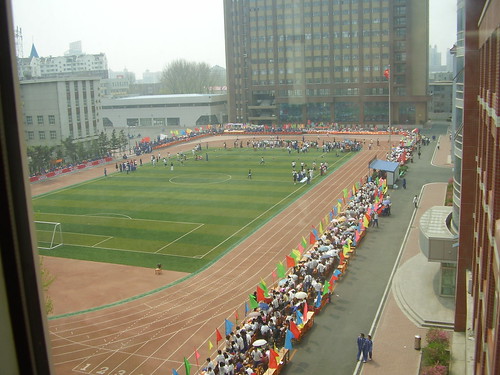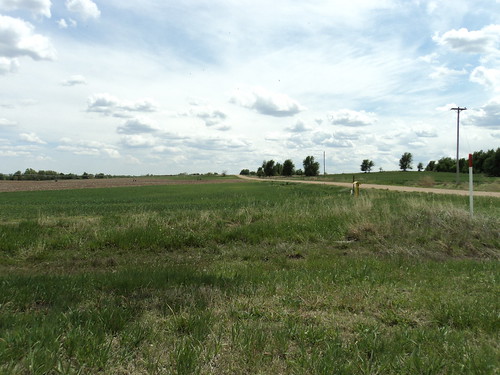We continue our tour of the Village with the classrooms:
"The girls' classrooms are on the left, and the boys' on the right. The Central Authority mandates gender segragation after infancy, and you should abide by that rule as best you can in dealing with the children."
Makes sense - we all know how vocal deep greens are about single-gender classrooms.
We get a little bit of information about what's taught in these classrooms - walking on energy boards, saying pledges, and regulations. I suppose that is all you'd need to know in this society, though I'm not sure how it takes ten years to learn it all. We also get this little vignette:
One of the boys, a smaller child with blond, spiky hair, was making the circle sign on his nose instead of his forehead. He was grinning, enjoying the farce. His Caretaker hit him sharply on the back of his head. He quickly put his hand to his forehead, and the look on his face made me think of a candle that had been snuffed out.
So remember that farming village in Jilin? While I was working there, I saw a teacher kick an eleven-year old girl. Once again, this dystopian hellhole school fails to impress me. Of course, most people aren't going to have this perspective.
Incidentally, this is why the dystopian writer's curse never bites as deeply as the science fiction writer's curse. We all had a big ol' laugh at Back to the Future Part II because we all know what the year 2015 really looks like. But how many people have been close enough to a war zone to realize that the nightmare future scenario is actually pretty tame?
The final stop is the nursery, and I'm going to take a pass on the big mother-daughter reunion for now. Trust me, there will be plenty of time for that once Agenda 21 turns into a Hallmark Special Edition in the third act. We do still have a few more points to touch on before we leave the Village. For instance, we still have to meet the
She came out, carrying an armload of diapers. She looked at me without smiling and began placing the diapers on the shelves under the bassinets. "Don't wake up a sleeping baby, you hear?" she said.
I bet she's really nice and will be very kind and understanding towards Emmeline.
One more point worth highlighting: Why is it that everyone is so willing to send their children off to what are essentially Dickensian orphanages?
"First of all, the Social Reorientation has been very through and the Central Authority persuasive. People needed something to believe in, so they believed in the leaders. They repeatedly said that the children would do better if raised by the Authorities. That message was hammered into the people. They heard it over and over until it became truth to them."
This should be a major plot point. The way that this society treats parenthood is such a major deviation from the real world that it demands careful consideration. Keep in mind that all of his happened not just within a human lifetime, but within a single generation. And yet this is all we're going to be told about it. Most people are just stupid sheep; Only the parents of good Mary Sues and Gary Stus knew better.
That may well be the essential message of not just this novel, but every politically-oriented dystopian narrative penned with the last few years: By reading this, you have proven yourself better than people who have not read this.









